- Login
Critical Spatial Practice
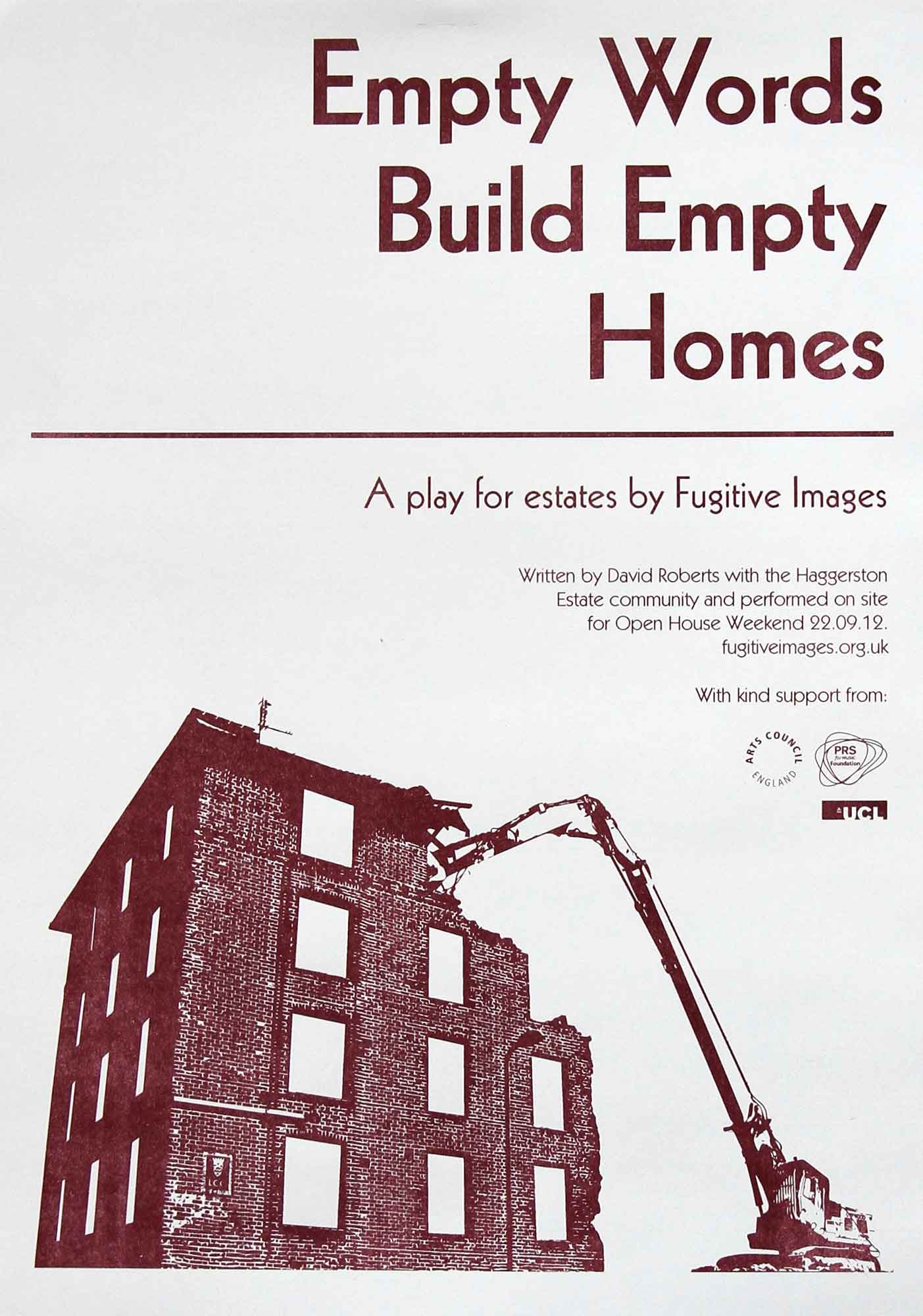
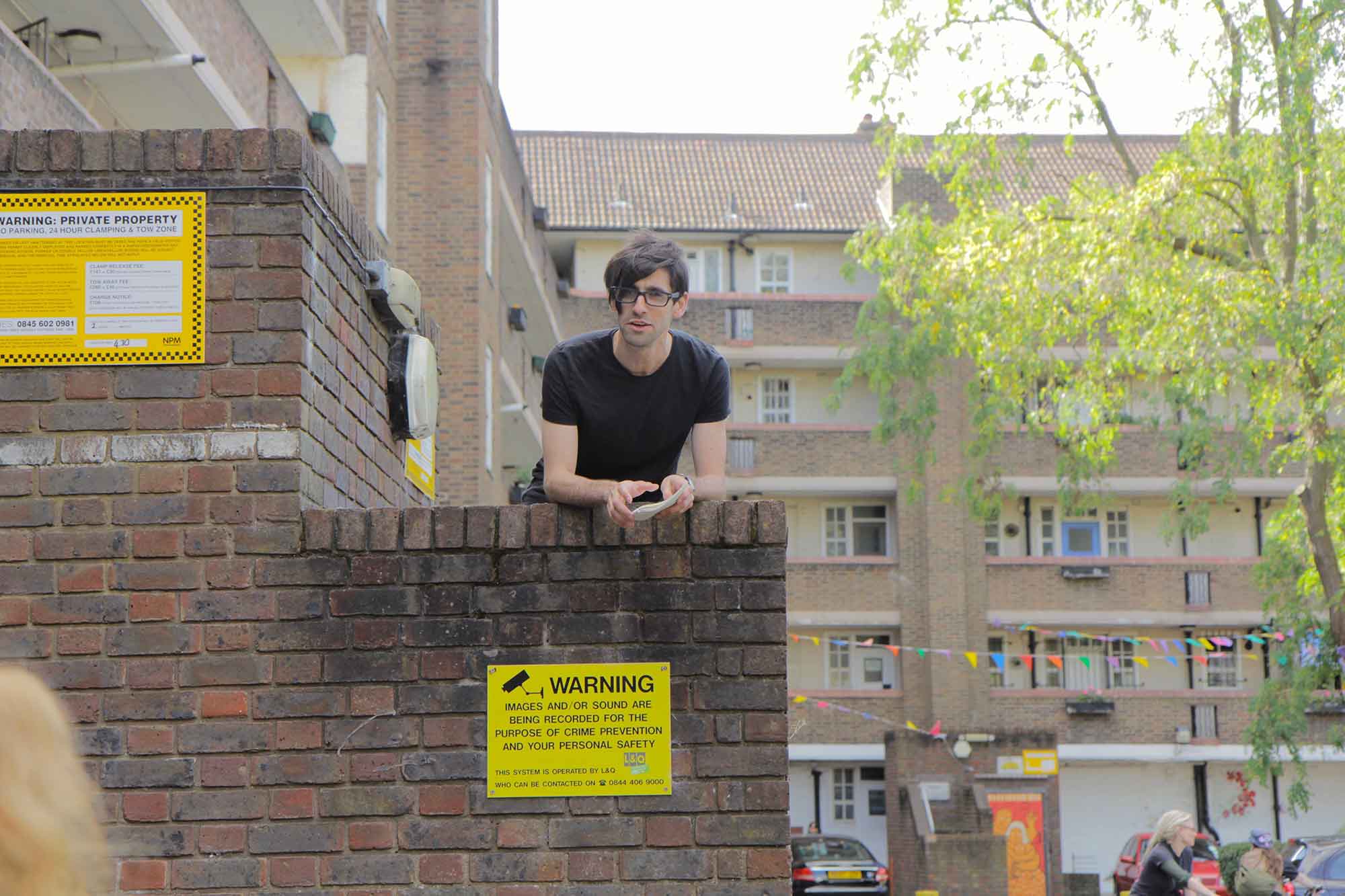
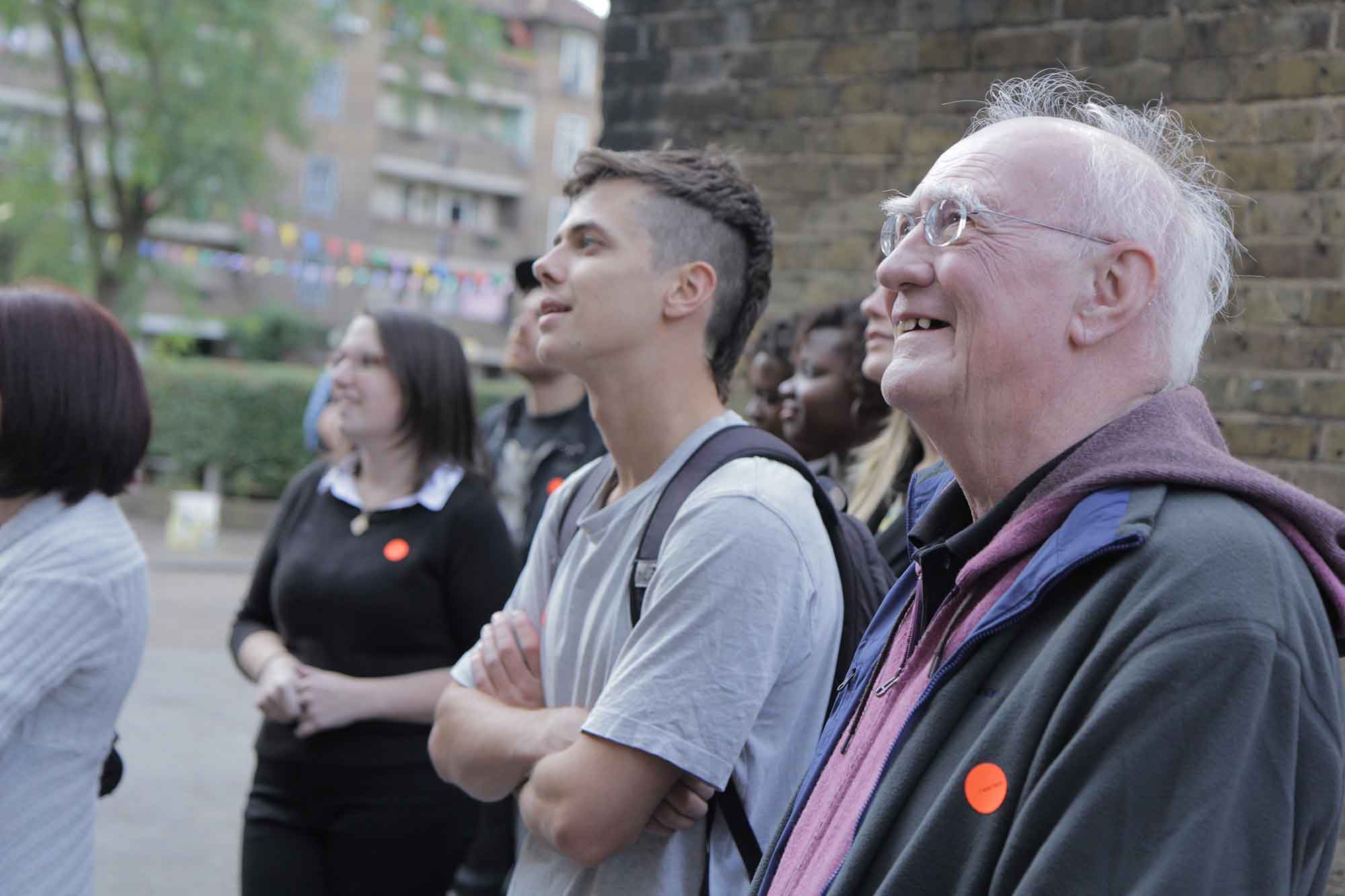
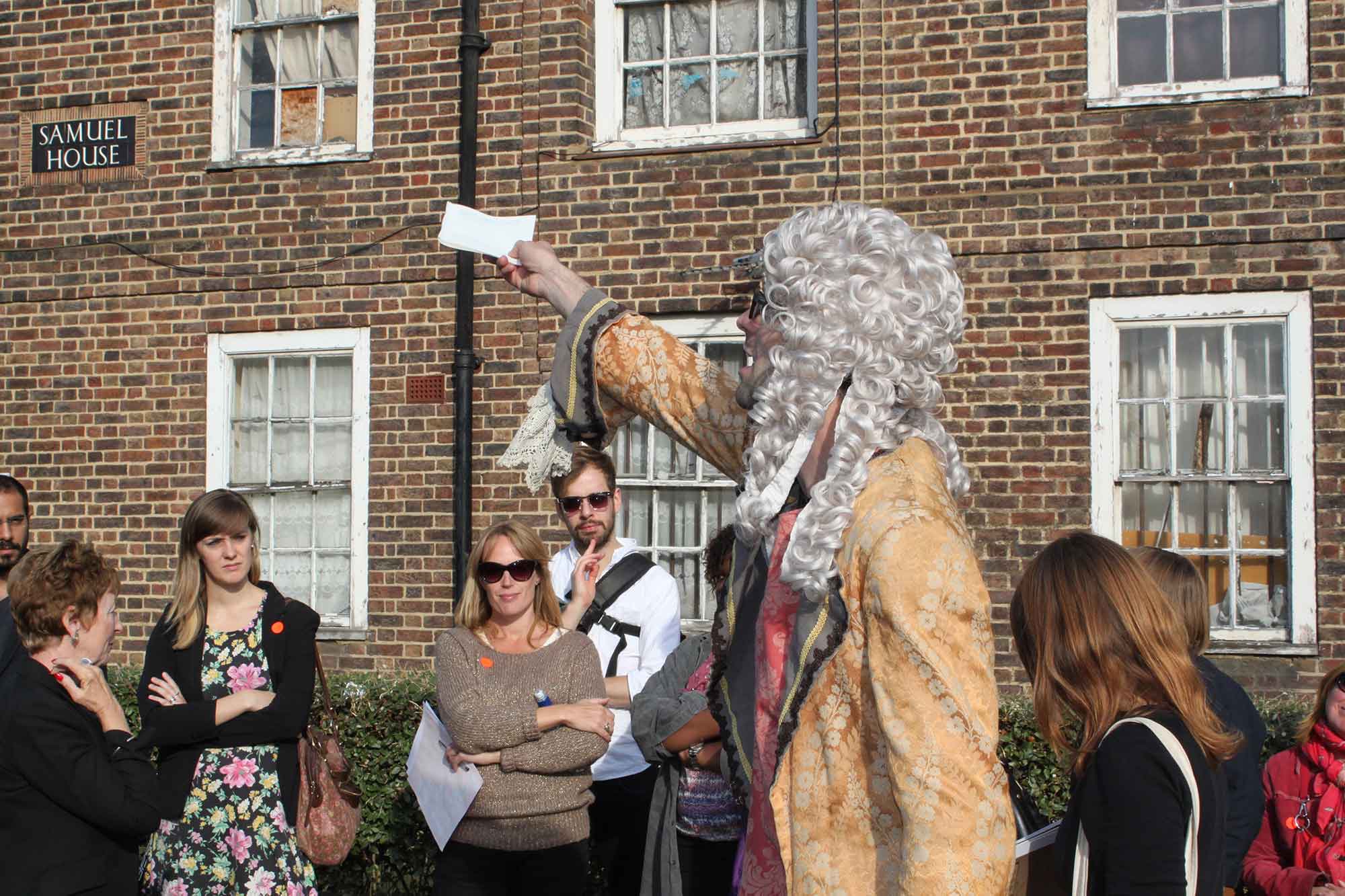
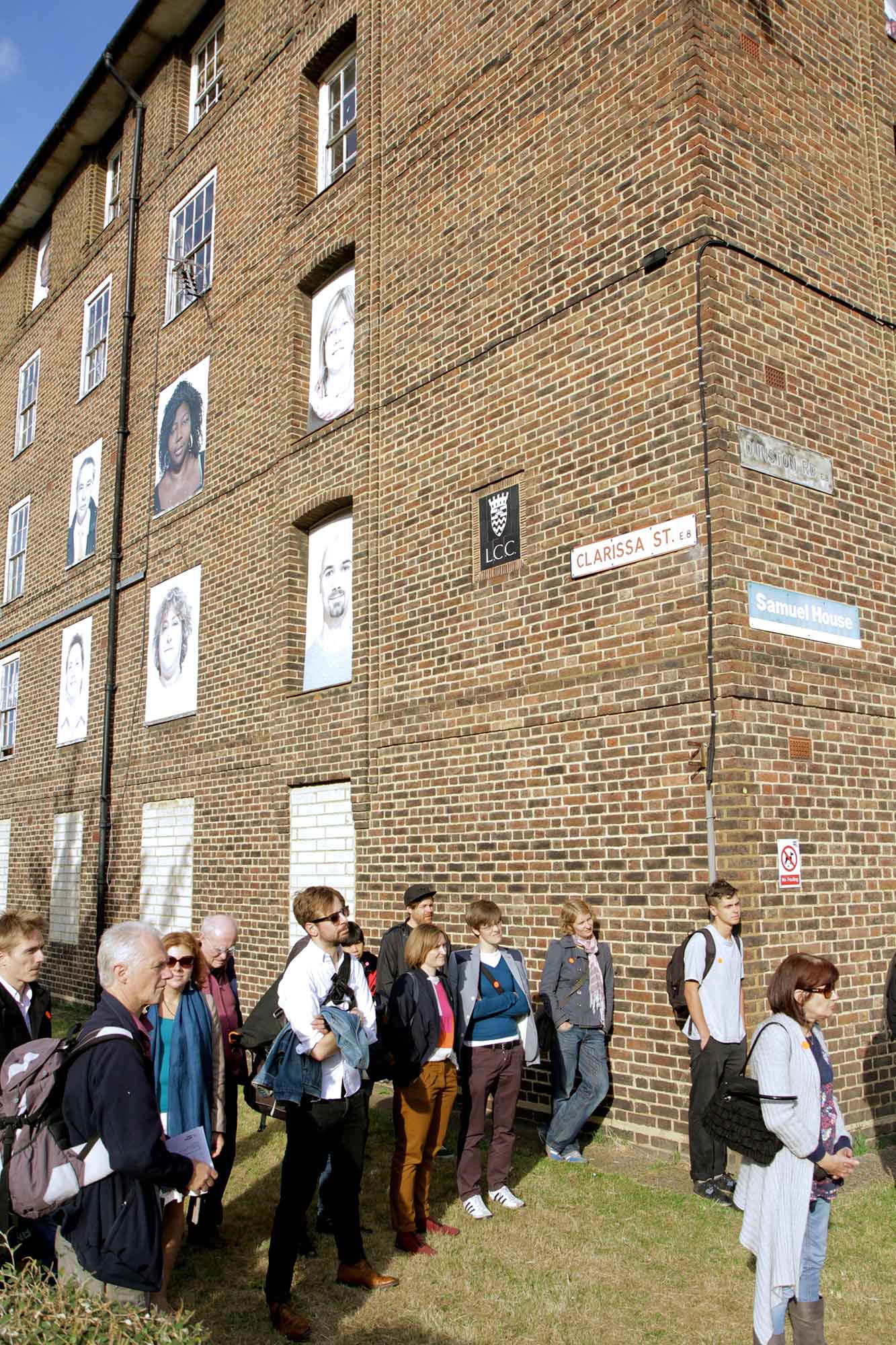
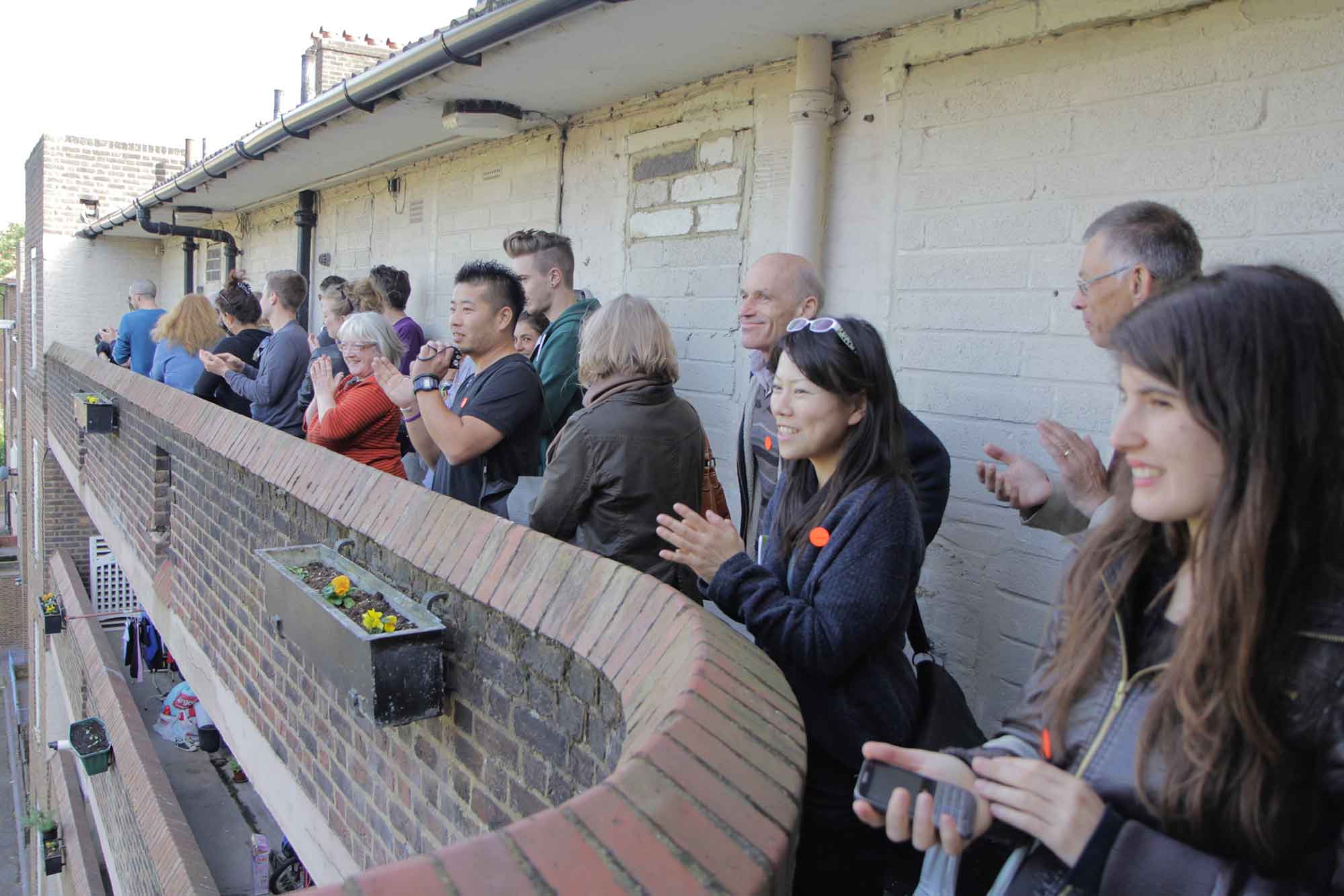
Welcome to the estate.
Ladies and gentlemen, thank you for being here.
Thank you for caring.
This building will fall in a matter of days.
[Turning to face the building, outstretching his arm and speaking slowly] It’s great to meet you, here, face to face.
[Turning back to the group] Please make time to get to know it.
Empty Words Build Empty Homes is a site-specific play performed at the soon-to-be demolished Haggerston West Estate in September 2012 developed during a practice-led PhD in Architectural Design under the supervision of Jane Rendell and Ben Campkin.
The Haggerston Estate was used as a stop on what residents described as ‘poverty tours’ where housing associations and charities would showcase the condition of forthcoming sites for regeneration. The play appropriated this medium, offering an alternative tour of the estate seen and understood in the company of its residents, sharing a more informed and complex history, opening up the building and its history of resistance and resilience to others.
The conception, devising and staging of the play draws upon the performative writings of Jane Rendell and Peggy Phelan; the choreography of Mike Pearson’s site-specific performances; and the scenario and scenography of Bertolt Brecht. The script wears these influences openly. With the estate’s imminent demolition, the elaborate stage directions write the disappearance of both performance and building and act as a written record of the estate. They address director, actor and reader, detailing the stage scenery, prescribing actions and imagining a restaging of the estate itself.
Usually tours demand the positioning of an eager guide between viewer and architecture. This performance neither privileges one way of seeing nor allows the audience to rush to conclusions. The performance made public archival and anecdotal, political and personal, bureaucratic and emotional material, casting the tour guide as different figures who shaped the estate – a Victorian surveyor, journalist, jogger, politician, architect, sociologist and resident.
The play takes the estate as storyteller, drawing on its dimensions and configuration to determine movement and narrative. It begins with a eulogy to public housing, a rubbish chute as pulpit, and ends with a rallying cry, a balcony as rostrum from which to proclaim the continued and urgent need for public housing as these communities and the qualities they bring to London are diluted or displaced by processes of regeneration.
David Roberts is a Teaching Fellow in Design and History & Theory at the Bartlett School of Architecture, Visiting Professor at Aarhus School of Architecture and Research Ethics Fellow at the Bartlett Faculty of the Built Environment. Alongside his teaching and research, he is part of collaborative art practice Fugitive Images and of architecture collective Involve.
David’s research, art and cultural activist practice engages community groups whose homes and livelihoods are under threat from urban policy, empowers ethical reasoning in built environment practice, and extends architectural education to primary and secondary school children.
Through his collaborative practice, David co-wrote and co-produced the feature-length documentary/fiction film, Estate, a Reverie; wrote and performed site-specific play Empty Homes Build Empty Homes; and co-curated a six-week project Real Estates, opening PEER Gallery up as a social, discursive and imaginative space around issues of housing and spatial justice in East London through a constantly changing series of exhibitions, screenings, discussions, readings and workshops.
Through his collaborative research, David completed a PhD in Architectural Design Make Public under the supervision of Professor Jane Rendell and Dr Ben Campkin which explored the history and future of two east London housing estates undergoing regeneration. His current research for the Bartlett Ethics Commission led by Professor Jane Rendell, seeks to raise awareness, expand understanding, and collectively develop approaches of ethical practice specific to built environment researchers and practitioners.
Through his collaborative teaching, David works with students to develop creative projects that intervene into a site in order to raise questions and make proposals, initiate independent research into the social relations of architecture, devise situated protocols setting out ethical terms of engagement, and write manifestoes to define what practitioners they seek to become.
David Roberts collaborates with community groups to re-enact and reactivate emancipatory spaces and ideals, drawing on critical acts of writing and performance as a mode of design, as a method of engagement, and a means of activism. On site, he gathers residents around their radical social, political and architectural histories to open a social, discursive and imaginative space from which to build collective knowledge and experiences and share this publicly through artworks, interventions and campaigns. This critical spatial practice brings site writing in dialogue with dramaturgy and devising to raise questions and amplify voices.
Forced Entertainment, Dreams’ Winter, 1994, Manchester Central Library.
Mike Pearson, Bubbling Tom, 2000, Hibaldstow.
Rajni Shah, Glorious, 2009-12.
PDF download of play script via this link: https://davidjamesroberts.com/files/pdfs/empty_words_play.pdf



































































